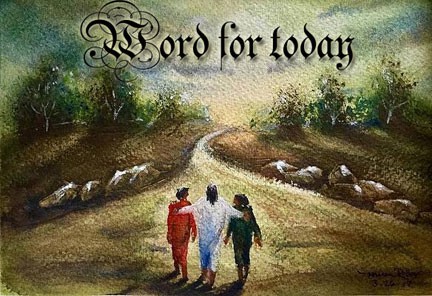Watch
Events
Articles
Market
More
Now the man Moses was very meek, more than all people who were on the face of the earth.
Numbers 12:3
Moses was a powerful man, but too humble to defend himself. He spoke out for others, but not for himself. That reminds me of #yeshua, who was falsely accused, but allowed himself to be convicted and executed for the crimes of the world.



Miriam and Aaron both complained about Moses' Cushite wife in Numbers 12:1. Why was only Miriam punished? Perhaps Miriam is mentioned first because she instigated the complaint against Moses? Her name means bitterness, while Aaron means light-bringer. Was there a difference in their motivations and attitudes?
What exactly was Miriam's complaint? Was she complaining on behalf of his wife or because of her? Maybe Miriam complained that Moses married a Cushite instead of an Israelite. This might be reflected in her punishment: turning completely white.
Regardless of ancestry, we are one nation in #messiah, adopted into the Commonwealth of Israel. The color of your skin, the flags and faiths of your parents, etc., are irrelevant to your salvation. Your obedience and the state of your heart matters.



061325
WORD FOR TODAY “what does your testimony look like?”: Joh 17:20 "I pray not only for these, but also for those who will trust in me because of their word,
WISDOM FOR TODAY: Pro 30:33 For as pressing milk produces butter and pressing the nose produces blood, so pressing out anger produces strife.
www.BGMCTV.org




Thought for Today: Friday June 13
Have you ever had weeds in your yard or driveway that you chop down and thought it was gone – only to have it grow again? Its root you will discover, were still alive, and they might even have spread. Sinful thoughts can be like that. When we come to the Moshiach, He begins to change our thinking and new thoughts begin to take root in our minds – thoughts about YHVH’s Love for us, and His will for our lives. Do not be surprise when old ways of thinking crop up; but do not let them linger. When they come, immediately turn to YHVH, and ask Him to help you get rid of them.


